Mulazim Hussain, born in Faisalabad, Pakistan, is a prominent singer and music producer known for his versatility in Ghazal, Pop, and Classical music. His musical journey began at the tender age of eight, nurtured by a family deeply involved in music.
Growing up in Faisalabad and later relocating to Rawalpindi, Mulazim’s passion for music was evident early on. His formative years were spent under the guidance of his mentors and teachers, Aslam Pervaiz and Faisal Hayat, who played a crucial role in shaping his musical skills.

Mulazim’s dedication to music led him to participate in a competitive music event in India, where he proudly represented Pakistan. Despite the advanced training of his Indian competitors, he showcased the natural talent that Pakistani musicians are renowned for. The unique musical styles of Pakistan, including those of Ustad Salamat Ali Khan from Multan, significantly influenced his approach. Mulazim’s experience in India highlighted the distinctive nature of Pakistani music and its unmatched quality.
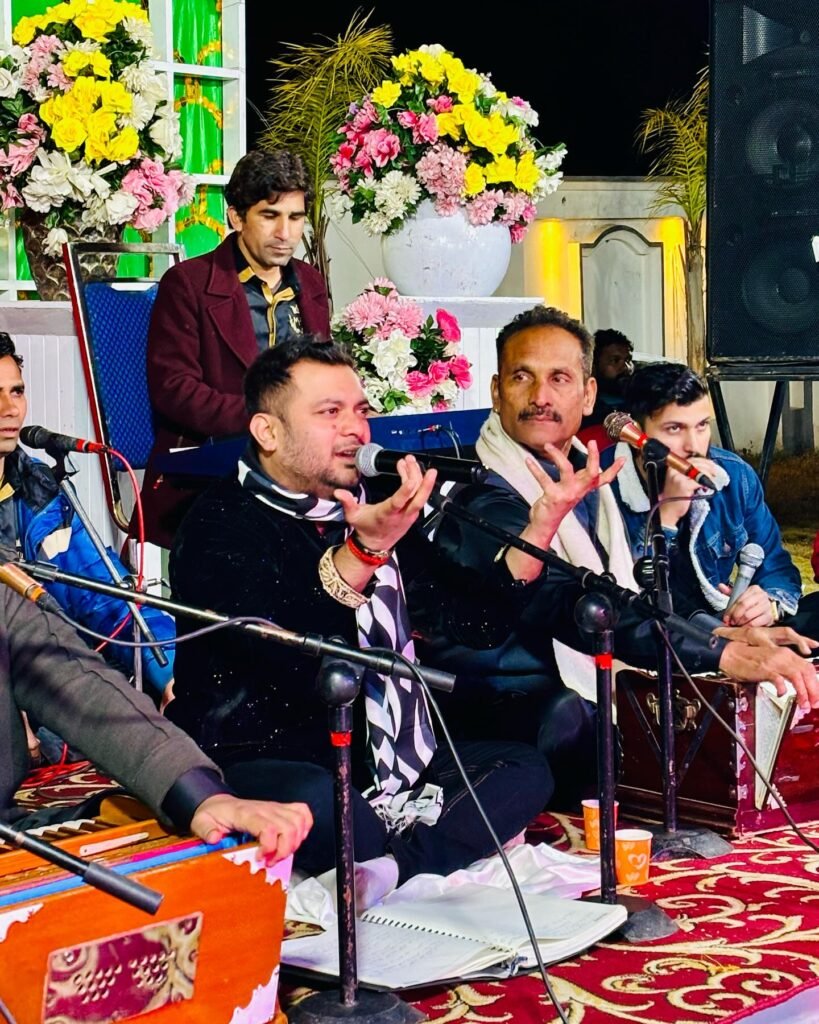
Returning to Pakistan was a significant milestone for Mulazim. He was warmly welcomed and received numerous opportunities to showcase his talent. One notable moment was his collaboration with Bilal Stream Band, where he recorded two songs: one a cover and the other an original composition by Mr. Pervez and Syed Ali Khan. His contribution to the film “Load Wedding,” particularly the song “Range Main Rangia,” earned him the prestigious “Shan Pakistan” award, a testament to his success and dedication.
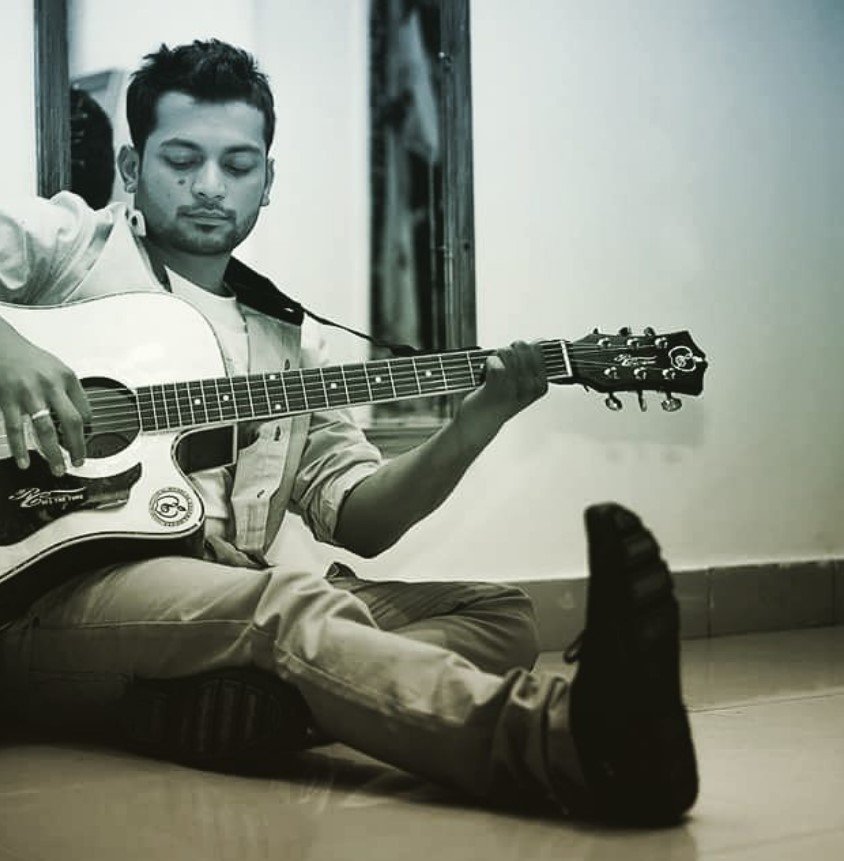
Recently Mulazzim Hussain gives an exclusive interview to The Public Purview. Here’s the insight from the interview:
Q: Mulazim, you have made a significant impact on the Pakistani music scene. Can you tell us about your early connection to music and how your journey began?
A: My connection to music started at a very young age. Born in Faisalabad and later settling in Rawalpindi, my family has a deep-rooted musical tradition. I began my musical journey at the age of eight, practicing harmonium and learning from esteemed mentors like Aslam Pervaiz and Faisal Hayat. Their guidance and the support of my family were instrumental in shaping my career.

Q: Your participation in a music competition in India was a notable milestone. How did that experience influence your career?
A: The competition in India was a pivotal moment for me. Despite the advanced training of my Indian counterparts, I was able to showcase the unique musical talent of Pakistan. Representing my Rajasthani musical heritage, I demonstrated that Pakistani music has an exceptional quality that stands apart. This experience not only boosted my confidence but also highlighted the richness of our musical traditions.

Q: Performing in front of legendary musicians like Abida Parveen and Ustad Ghulam Ali Khan must have been quite an experience. How did you handle the pressure and what did you learn from them?
A: Performing before such legends was both an honor and a challenge. Abida Parveen’s compositions, such as “Man Lagiyan Mola Main To Teri,” and Atif Aslam’s modern hits like “Dori Sahi Jaayega” have been influential in my musical journey. Receiving praise and a standing ovation from these esteemed figures was a significant achievement. I learned a lot from their performances and continued to refine my own style based on their influence.

Q: Based on your experiences and observations, what do you think are the key differences between Indian and Pakistani singers, especially in terms of musical training and style?
A: The key differences between Indian and Pakistani singers often stem from the distinct musical traditions and training methods in each country. In India, there is a strong emphasis on classical music training, with a rigorous focus on various forms such as Hindustani and Carnatic music. The training often involves a deep dive into intricate techniques and a long process of mastering classical compositions.
In contrast, Pakistani music, while also deeply rooted in classical traditions, often integrates a blend of folk and Sufi influences. Pakistani singers may draw from a rich heritage of Qawwali and folk music, which adds a unique texture to their performances. Additionally, the approach to training can be more diverse, combining traditional methods with contemporary influences.
Both musical traditions have their strengths and distinctive qualities. Indian singers might emphasize technical precision and classical intricacies, while Pakistani singers often showcase a fusion of traditional and modern elements, bringing a different flavor to their performances.

Q: How was your reception when you returned to Pakistan, and what opportunities did you have following your international success?
A: Upon my return, the reception from the Pakistani people was incredibly warm and supportive. It was a proud moment for me when I performed a national song at the Parliament House, penned by Muhammad Ali Jinnah. This honor was a testament to my achievements and the nation’s pride in my success. The positive reception opened doors for new projects and collaborations.
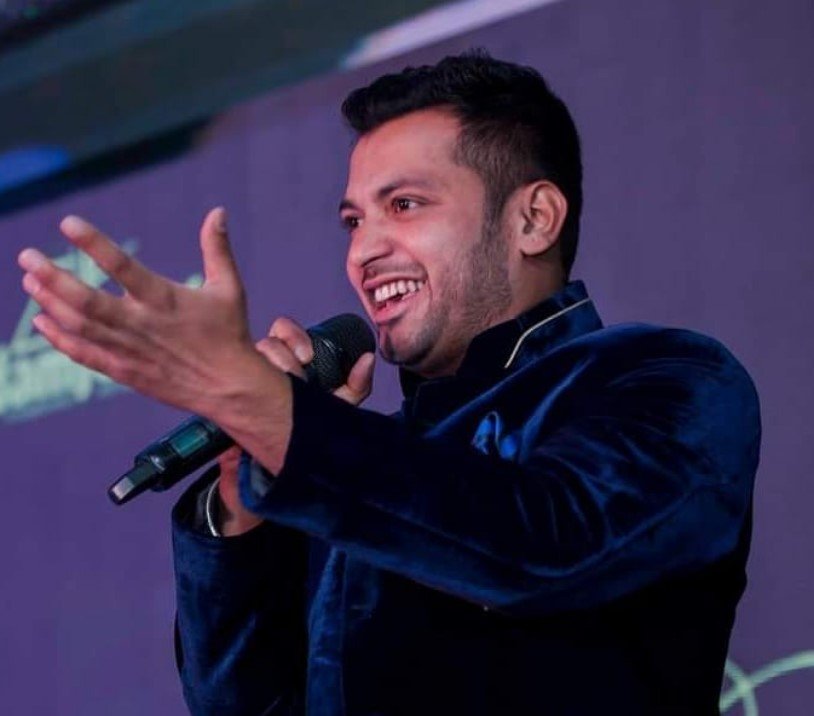
Q: What kind of reception did you receive after returning from the Surkshetra competition?
A: The reception after returning from Surkshetra was nothing short of spectacular. My return was celebrated with immense enthusiasm, as people from all walks of life welcomed me with open arms. The support from my fans, media, and the music industry was overwhelming. It was a reaffirmation of the affection and pride people have in our musical heritage, and it motivated me to continue my work with even greater passion.

Q: Can you tell us about your recent projects and collaborations after returning to Pakistan?
A: Since returning, my career has flourished with various projects. I collaborated with Bilal Stream Band on two tracks—one a cover and the other an original composition. My work on the song “Range Main Rangia” for the film “Load Wedding” earned me the prestigious “Shan Pakistan” award. Currently, I am working on a mix of Qawwali and solo performances, including recent projects like “Mankin To Mola” and upcoming pieces like “Ya Nabi.”
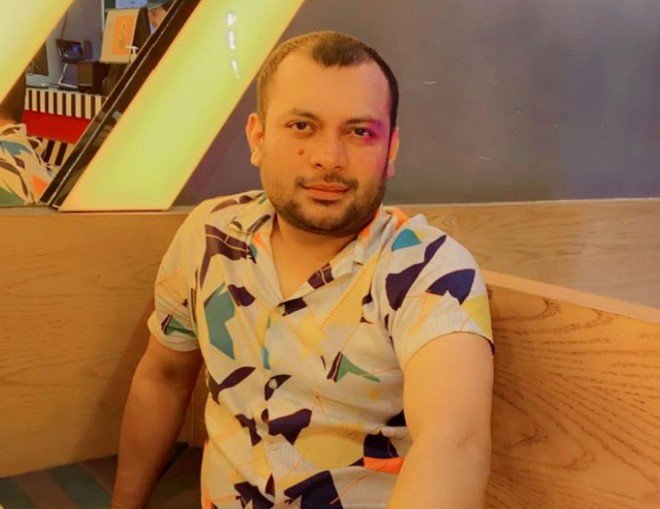
Q: How do you approach performing in different musical styles such as Qawwali, Ghazal, and Classical music?
A: Navigating various musical styles requires a deep understanding of each genre’s unique requirements. Whether it’s Qawwali, Ghazal, or Classical music, each style presents its own challenges. My success across these genres reflects my dedication to my craft. Recent performances, like the Qawwali “Mola Ali Mola,” showcase my ability to blend traditional and contemporary elements seamlessly.
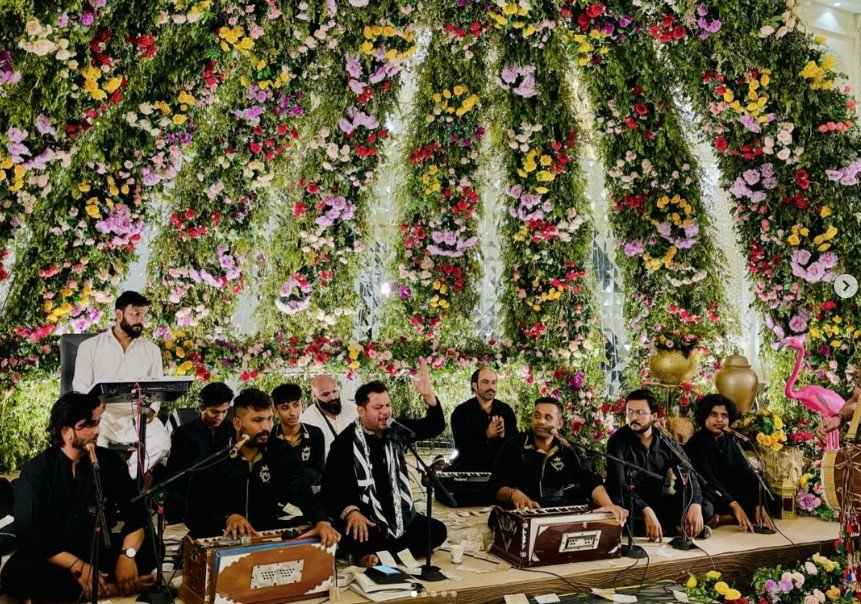
Q: Looking ahead, what are your plans for the future, and how do you intend to continue engaging with your audience?
A: I plan to continue working on new projects and engaging with my audience. I understand the curiosity about my appearances, and I am recording four to five new songs while also preparing for live performances. With ongoing projects and support from my fans, I aim to remain a cherished artist in the Pakistani music scene and keep contributing to the industry with fresh and exciting content.
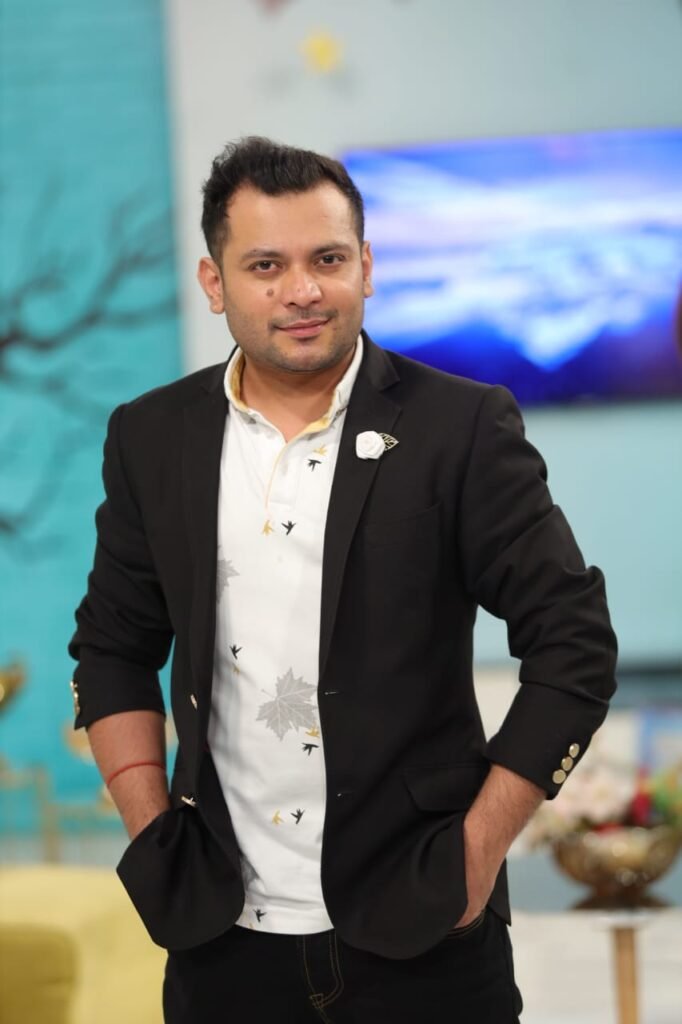
Q: How do you balance your musical career with your personal life?
A: Balancing my musical career with personal life can be challenging, but it’s essential for my well-being. I make sure to set aside time for family and personal interests. My family has been a constant source of support, and their understanding helps me manage both my professional and personal commitments effectively.
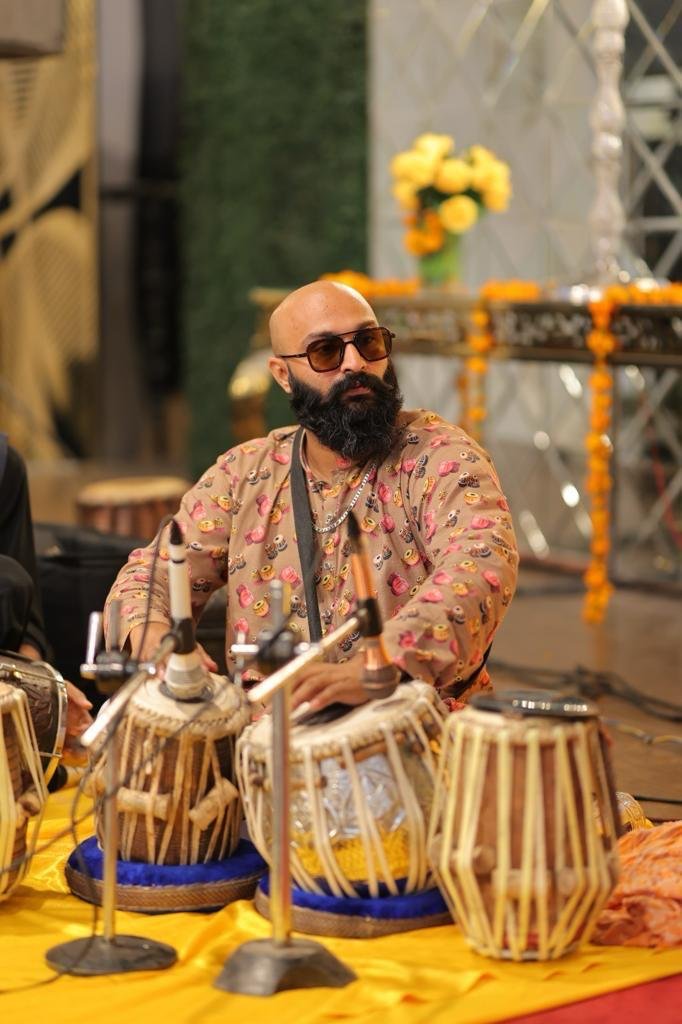
Q: What advice would you give to aspiring musicians who look up to you?
A: My advice to aspiring musicians is to stay dedicated and passionate about their craft. Focus on honing your skills and learning from every opportunity. It’s important to embrace both successes and setbacks as part of the journey. Surround yourself with supportive mentors and never lose sight of your unique voice and style.
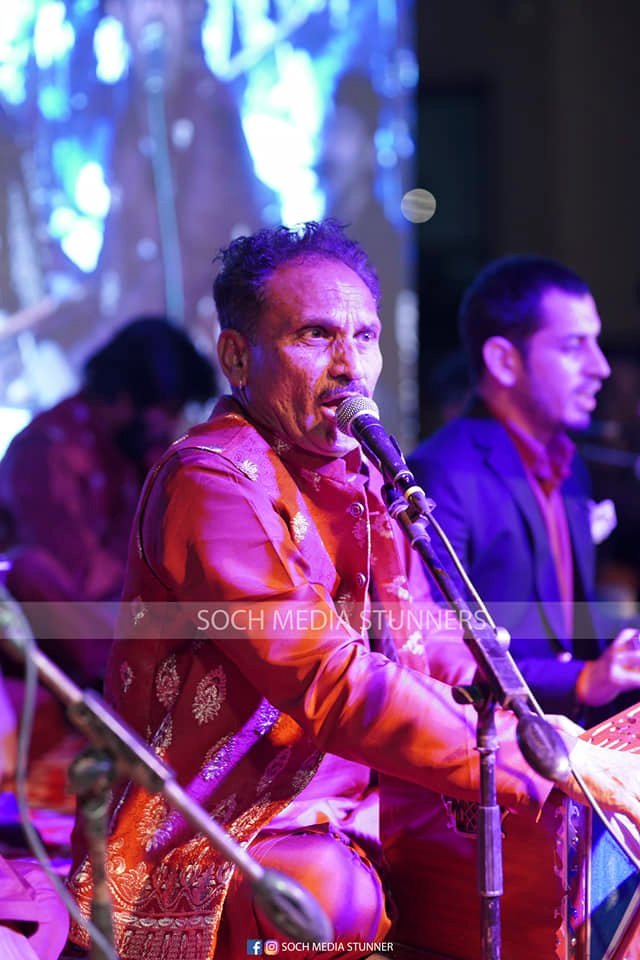
Q: Can you share a memorable moment from your musical career that stands out to you?
A: One memorable moment was receiving the standing ovation from the legends at the competition in India. It was a profound affirmation of my efforts and the love I have for music. Additionally, performing at the Parliament House and singing a national song by Muhammad Ali Jinnah was an incredibly proud moment for me and a highlight of my career.

Q: To conclude, how would you summarize your journey and the impact you hope to have on the music industry?
A: My journey has been marked by a deep passion for music and a commitment to representing Pakistan on both national and international stages. Achievements such as nominations for the ‘Lux Style Award’ and contributions to projects like Coke Studio and “Load Wedding” highlight my impact on the music industry. I hope to continue making meaningful contributions and remaining a prominent figure in the Pakistani music scene, thanks to the support of my fans and the blessings of Allah.











